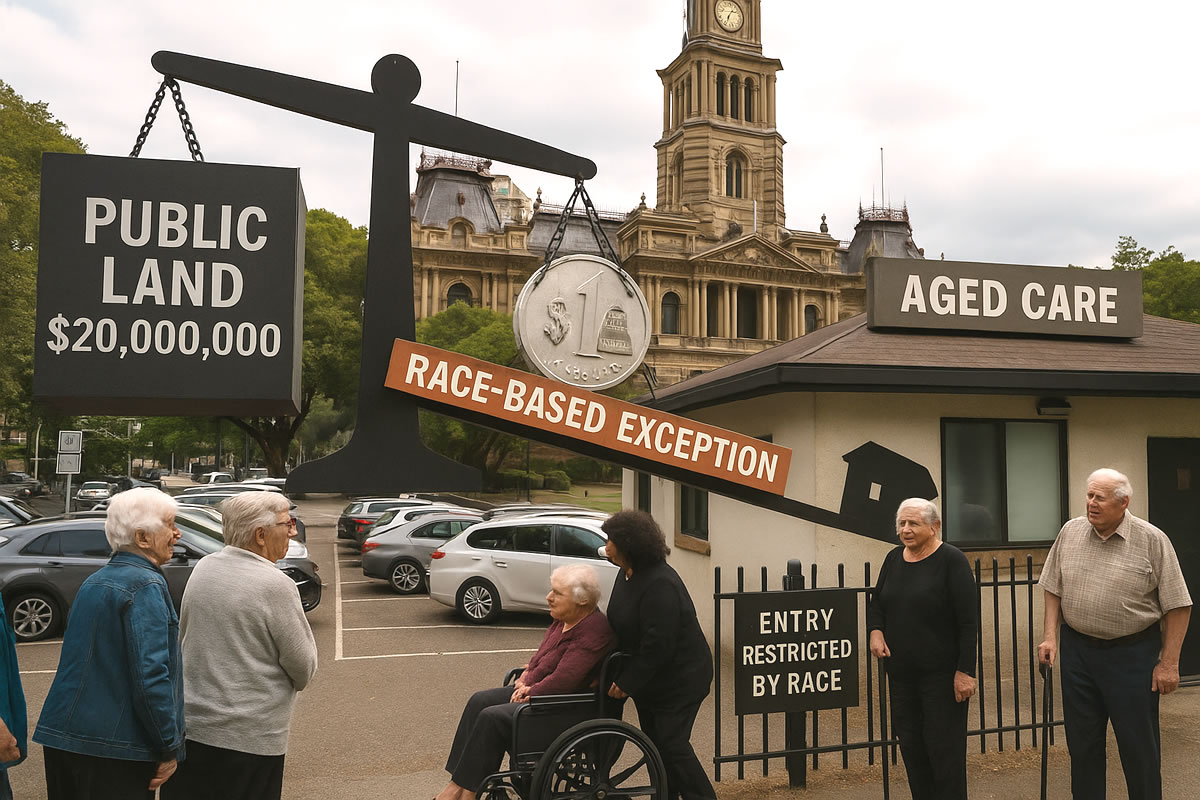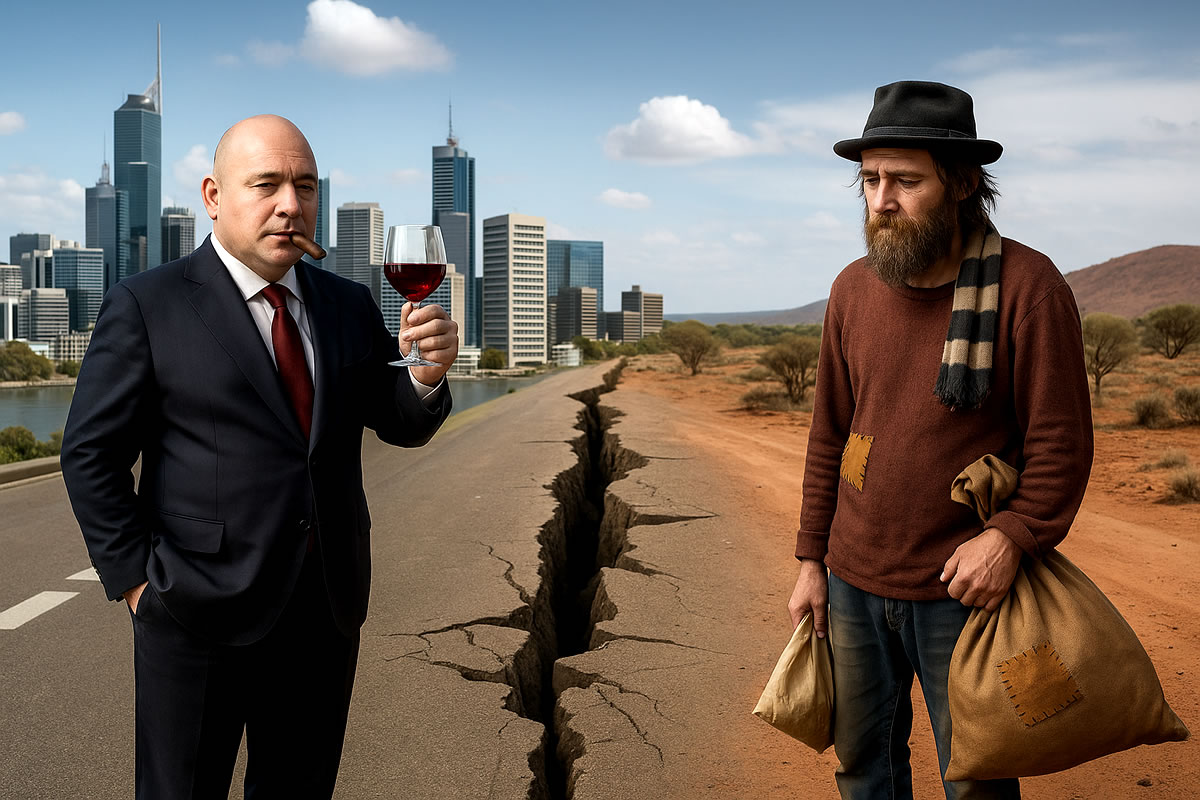Australia, once celebrated for its laconic irreverence and cultural commitment to the “fair go,” is fast becoming a nation where saying the wrong thing—often unintentionally—is treated not as a slip of the tongue, but as a moral crime. A quiet transformation has swept through our public institutions, schools, corporations, and media outlets, creating a chilling environment where the average Australian knows better than speaking their mind.
The rise of “woke censorship”—a cultural phenomenon where speech is aggressively policed in the name of progressive ideology—has led to the silencing not just of public figures and academics, but of everyday citizens. No longer a fringe concern, this censorship has become institutionalised, cloaked in the language of “safety,” “inclusion,” and “respect.” The result is a nation where free speech is tolerated only when it conforms to a narrow orthodoxy—and where the penalty for deviation can be social exclusion, job loss, or public shaming.
The Disinvitation Economy
Consider the case of journalist Samantha Maiden, who was abruptly disinvited from a Sydney University student journalism conference. Organisers claimed her past coverage of issues like transgender policy made her an unsuitable speaker, despite her not having written extensively on those topics for years. This was not an isolated incident—it was a warning. Even accomplished journalists, when seen as insufficiently ideologically aligned, can be purged from spaces that once celebrated robust debate.
University campuses—traditionally bastions of free thought—are now among Australia’s most ideologically restrictive institutions. A 2023 IPA survey revealed that 40% of students felt they couldn’t express their opinions on controversial topics, with many citing fear of being ostracised or penalised. The mere act of asking a politically incorrect question is enough to earn accusations of “harm” or “bigotry.”
What’s more alarming is that this censorship is often internalised. Australians don’t need to be silenced by law when they are already silencing themselves out of fear of social or professional reprisal.
Corporate Censorship and the New HR Thought Police
In the corporate world, Diversity, Equity and Inclusion (DEI) offices have become unofficial speech regulators. Employees undergo mandatory training programs that often include ideological content, such as unconscious bias testing, pronoun enforcement, or “anti-racism” frameworks that view all outcomes through a lens of race and power. The supposed goal is harmony; the reality is conformity.
One Sydney finance professional shared anonymously how employees were warned not to question gender identity policies during a DEI session: “We were told to ask questions ‘respectfully,’ but the boundaries of what was allowed were never clear. Everyone just kept quiet.”
The language of inclusion is used to justify the exclusion of dissenting views. Once-simple words like “equality,” “diversity,” and “justice” have been redefined to serve ideological ends. If you believe in treating people equally regardless of identity, you are now accused of denying lived experience. If you champion merit, you are accused of upholding privilege. The manipulation of language itself becomes a tool of censorship.
The Medical and Scientific Gag
Even in professions that depend on open inquiry, censorship is becoming endemic. Australian doctors have reported being discouraged—or outright banned—from sharing professional opinions that conflict with politically sensitive narratives. In one case, doctors speaking critically about COVID-19 policy, vaccine rollout strategies, or the long-term impact of lockdowns found themselves facing disciplinary review.
A group of medical professionals told the Daily Declaration in 2024 that they were afraid to publish or discuss certain research, even in private forums, for fear of being deregistered or attacked online. “We’re not conspiracy theorists,” one said. “We’re clinicians asking questions that matter. And we’re being treated like heretics.”
No domain of expertise is safe if scientific discussion is vulnerable to censorship. And if even the experts are afraid to speak, what hope is there for the average citizen?
Legislated Speech and the 18C Debate
Beyond social and professional pressures, certain legal frameworks also contribute to the erosion of free expression. Section 18C of the Racial Discrimination Act makes it unlawful to “offend, insult, humiliate or intimidate” a person based on race or ethnicity. While originally designed to prevent racial vilification, it has been increasingly used to target speech that is merely controversial or unpopular.
The most well-known case involved columnist Andrew Bolt, who was found to have breached 18C after questioning the identity claims of fair-skinned individuals identifying as Aboriginal. Whether one agrees with Bolt or not, the precedent is chilling: even reasoned, public interest journalism can be declared unlawful if it causes subjective offence.
Laws like 18C are a blunt instrument. They are invoked selectively and disproportionately. And most importantly, they shift the burden of proof—not onto those who claim harm, but onto those who speak. In a democratic society, that inversion is not just dangerous—it is unsustainable.
The Psychology of Self-Censorship
Woke censorship doesn’t always wear a badge or carry a clipboard. It’s most effective when it lives in the minds of everyday people. Australians are learning to ask themselves: “Can I say this? Should I post this? Will this cost me friends—or my job?”
This psychological chilling effect stifles more than conversation—it corrodes social trust. If you cannot speak openly to your colleagues, neighbours, or community without fear of ideological backlash, then civil society begins to unravel. People retreat into silence or echo only what they think is safe. Debate is replaced with ritual affirmations of the current dogma.
This is not progress. It is cultural regression, masked in the language of inclusion.
The Real Cost of Censorship
Woke censorship may begin with words, but it ends with lives diminished. Careers are ruined, relationships strained, and communities divided. People lose trust in institutions, in the media, and in each other. In some cases, citizens begin to disengage from civic life altogether, believing the system is rigged and the truth no longer matters.
This disengagement is dangerous. In a healthy democracy, disagreement is not a threat—it is a feature. The average Australian understands this instinctively. They don’t want to live in fear of HR departments, activist mobs, or social media inquisitions. They want to speak their minds, disagree respectfully, and go about their lives.
It is time we reclaimed that right.
A Way Forward
Reversing the damage of woke censorship will not happen overnight. It requires both cultural courage and institutional reform.
First, Australians must speak. Not recklessly, but bravely. We must reject the false binary that says kindness and truth are incompatible. We must support those who dissent—whether they are doctors, teachers, students, or neighbours. And we must teach the next generation that freedom of speech is not a Western indulgence—it is a human right.
Second, lawmakers must revisit legislation that stifles speech under the guise of protection. Section 18C must be repealed or radically reformed. Public institutions must be held accountable for enforcing ideological conformity. And universities must be reminded that their purpose is to challenge ideas—not enforce dogma.
Lastly, media platforms must be pressured to uphold free speech, not suppress it. Balanced debate, not activist filtering, must become the norm.
Australia is a nation built on resilience, humour, and plain-speaking honesty. If we lose that, we lose more than our culture—we lose our identity.
Let’s not go quietly into that silence.






